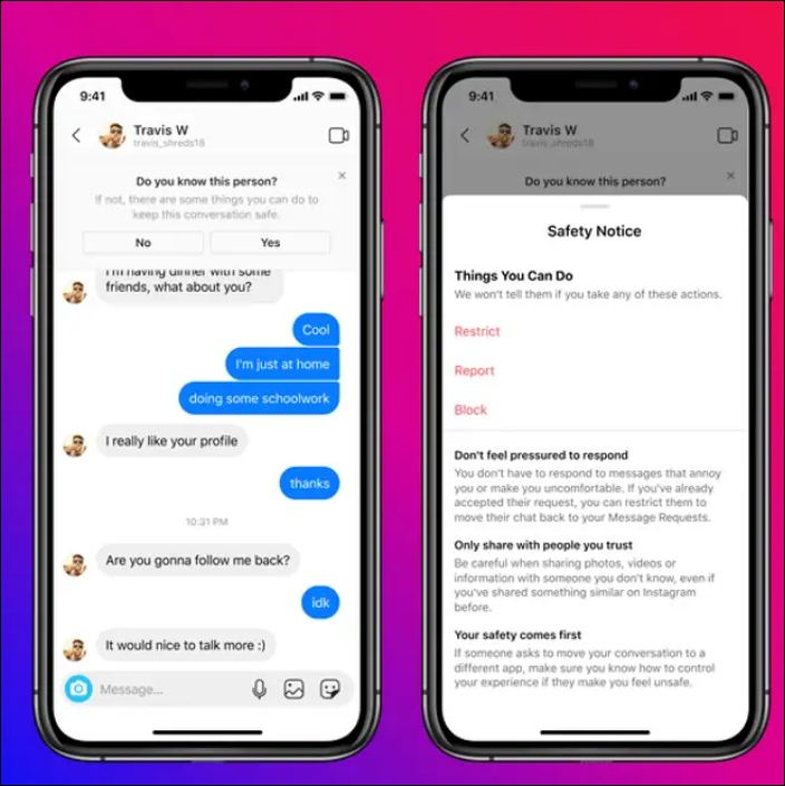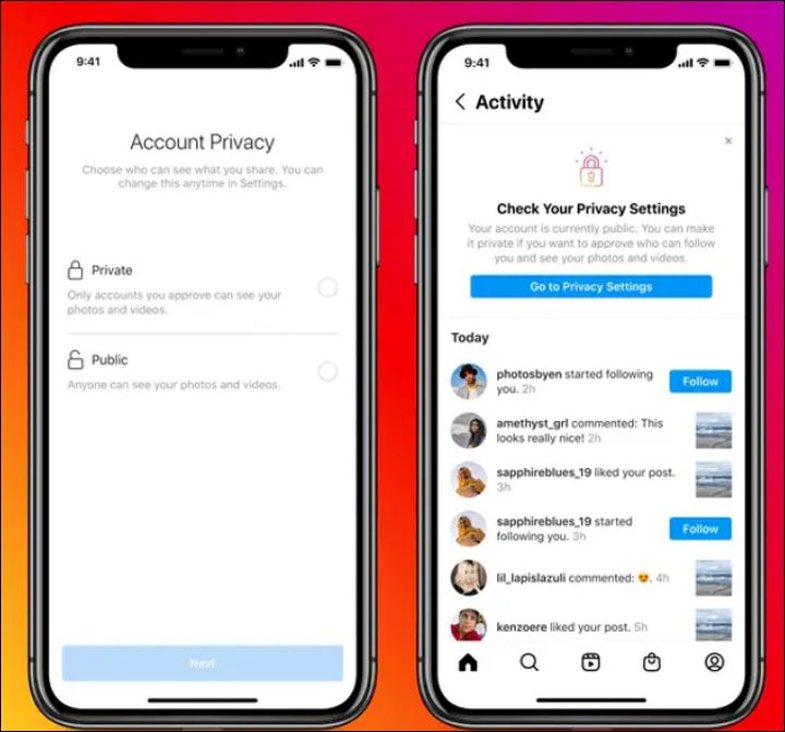
Instagram has announced plans to introduce a new security feature, created to keep teens under the age of 18 safe when using the app. The platform says it will soon stop people over the age of 18 from being able to text minors if they do not follow each other on Instagram.
If an adult tries to send a message to a minor who does not follow them, he or she will receive a notice telling him or her that "sending a message to that account is not an option". On the other hand, the application will also send messages to young people to encourage them to be careful in communicating with people with whom they have not communicated before.
"DM (direct message, inbox) security alerts will alert young people when someone with potentially suspicious behavior is trying to interact with them," Instagram explained in a blog post.
"For example, if an adult is sending a large amount of friend requests or messages to people under 18, we will use this tool to notify recipients within their DMs and give them a opportunities to end, block, report the conversation, etc. "

Of course, the security setting depends on the users giving their real age when registering in the app. Although the platform is working to develop a technology capable of predicting the age of users from their images.
Instagram rules mean that only teens ages 13 and up are allowed to create an account, though so far, anyone can easily log in, lying about their date of birth.
Usually when a person creates an Instagram account, the setting is automatically in 'public', unless changed manually to 'private', however the app will now ask under 18 which one they would prefer from the beginning, explaining the difference between dyve.

In general, the application is committed to creating a safer space for everyone, but especially those under 18 years old.
According to the Center for Crime Prevention and Child Safety (US), there are currently about 500,000 "online criminals" active online each day. According to the FBI, over 50% of victims of online sexual exploitation are between the ages of 12 and 15. Four percent of children receive aggressive requests from adults online, including attempts to contact them in person. Moreover, 58 percent of parents report that they are concerned about the threats that foreigners pose online. Two in ten children between the ages of 8 and 11 are aware of this issue and worry that outsiders may disclose information about them. And while using social networks, 40% of children remove privacy settings in order to attract more friends or followers.
Source: Unilad





